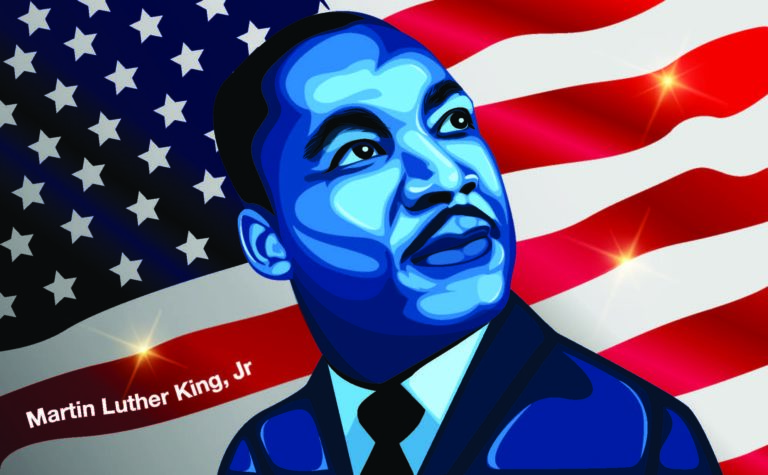
Published in Rotary International:
Rotarian peace builders have long championed many of the human rights values fostered by the legacy of Dr. Martin Luther King Jr., and helped celebrate the 70th Anniversary of the Universal Declaration of Human Rights during this Rotary year. In June 2017, Bernice King, gave a rousing speech about the hard work of fostering peace at the Rotary Presidential Peace Conference held in Atlanta, Georgia. She challenged her audience – both those in the auditorium and Rotarians worldwide – to think anew about how they define peace and how they interact with the people they disagree with. “Every member of our world society, even our adversaries and opponents, is worthy of being looked upon with dignity,” she said.
Drawing inspiration from both Dr. King's Christian faith and the peaceful teachings of Mahatma Gandhi, Dr. King led a nonviolent movement in the late 1950’s and ‘60s to achieve legal equality for African-Americans in the United States. While others were advocating for freedom by “any means necessary,” including violence, Martin Luther King, Jr. used the power of prayer, words and acts of nonviolent resistance, such as protests, grassroots organizing, and civil disobedience to achieve seemingly-impossible goals.
During the less than 13 years of Dr. Martin Luther King, Jr.’s leadership of the modern American Civil Rights Movement, from December, 1955 until April 4, 1968, African Americans achieved more genuine progress toward racial equality in America than the previous 350 years had produced. Dr. King is widely regarded as America’s pre-eminent advocate of nonviolence and one of the greatest nonviolent leaders in world history.
He went on to lead similar campaigns against poverty and international conflict, always maintaining fidelity to his principles that men and women everywhere, regardless of color or creed, are equal members of the human family.
Dr. King’s “I Have a Dream” speech, Nobel Peace Prize lecture and “Letter from a Birmingham Jail” are among the most revered orations and writings in the English language. His accomplishments are now taught to American children of all races, and his teachings are studied by scholars and students worldwide. He is the only non-president to have a national holiday dedicated in his honor, and is the only non-president memorialized on the Great Mall in the nation’s capitol. He is memorialized in hundreds of statues, parks, streets, squares, churches and other public facilities around the world as a leader whose teachings are increasingly-relevant to the progress of humankind.








